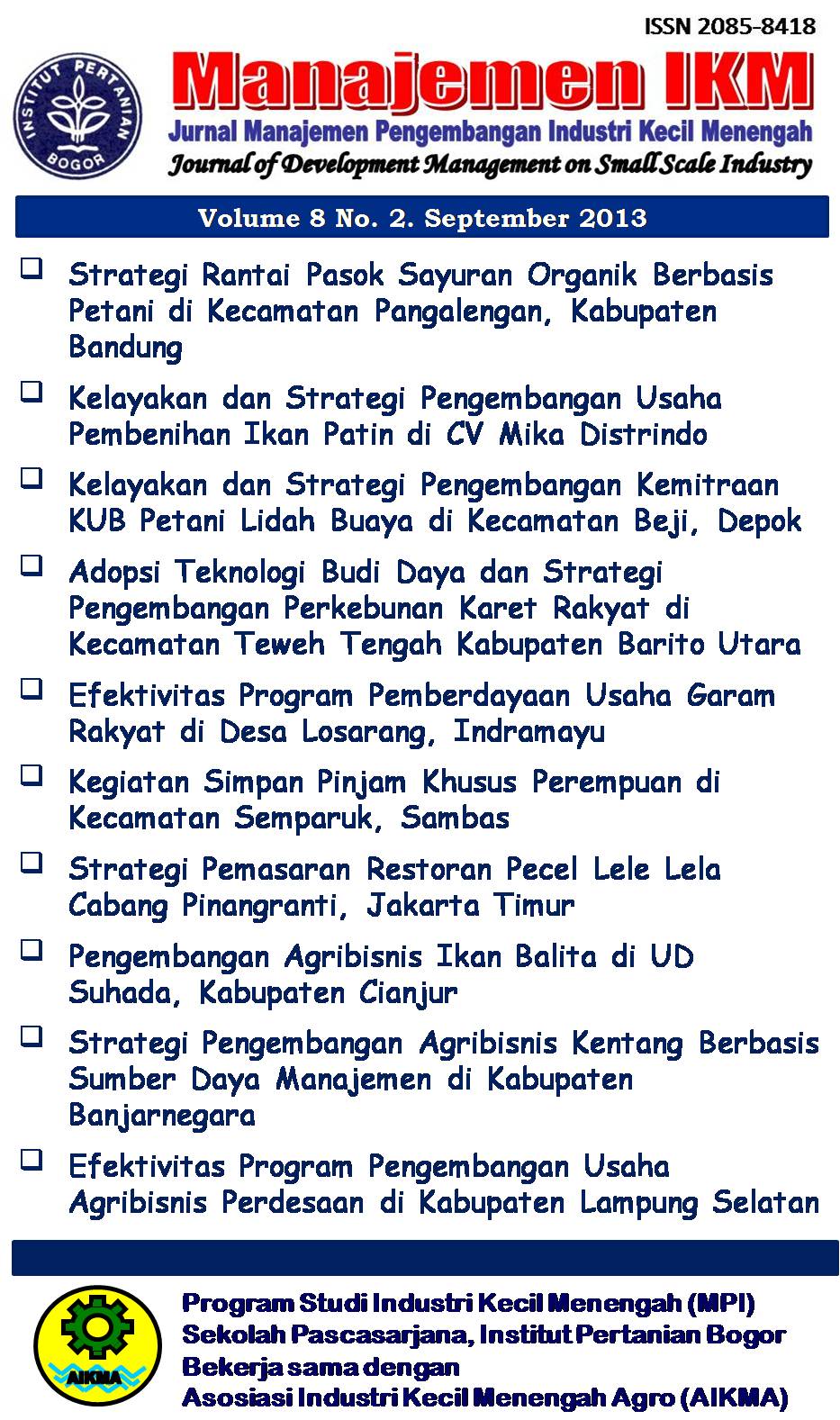Kelayakan dan Strategi Pengembangan Kemitraan KUB Petani Lidah Buaya di Kecamatan Beji, Depok
Abstract
The success of aloe vera as business commodity in co-partnership pattern, like that between PT Kavera Biotech and the collective work cluster (KUB) of aloe vera farmers in Kecamatan Beji, Depok, needs an accurate evaluation. The objective of this research were to (1) investigate the co-partnership business, (2) analyze the feasibility, and (3) analyze the development strategy. The data were collected by observation, interview, and questionnaire. The location selection was done purposively based on the consideration that the location had been used as sampling for aloe vera cultivation. The feasibility of business was valued using the methods of PBP, NPV, BCR, IRR, and BEP. Analysis of enterprise development strategy using the Input Stage (EFE and IFE), Matching Stage (SWOT and IE), and Decision Stage (QSPM). The result of this study showed that the aloe vera business with co-partnership pattern based on Analysis I was feasible to be managed in 6 KUBs; while the one based on Analysis II was feasible to be managed in 5 KUBs. Analysis I on the farmers with house-yard cultivation field or pot cultivation resulted that it was feasible to be managed, while the Analysis II on the farmers in KUB Tanah Baru and Kemiri Muka resulted that they were not feasible to be managed. In the meantime, the aloe vera cultivation in abandon field in KUB Pondok Cina and Tanah Baru were feasible to be managed based on Analysis I and II. The farmers with house-yard cultivation field or pot cultivation in small scale (<100plants), middle scale (100-199 plants), and big scale (200-399 plants) cultivation and the aloe vera cultivation in abandon field with small scale (300-399 plants), middle scale (400-499 plants), and big scale (>500 plants) on Analysis I and II that it was feasible to be managed. The best result of the development strategies is the need to increase the productivity in utilizing the increasing demand of aloe vera materials. The implementation of the strategy is performed by advancing the work cluster along with its supporter effectively and efficiently.
Key words: aloe vera, collective work cluster (KUB), co-partnership strategy, feasibility study


